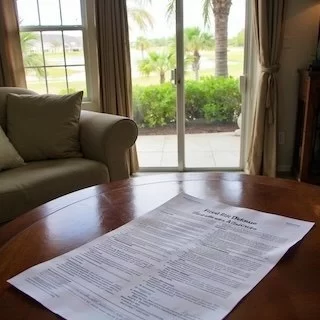- 1 - Understanding Disclosure Requirements in Home Sales
- 2 - Key Legal Obligations for Home Sellers
- 3 - Common Disclosure Documents and Reports
- 4 - State-Specific Rules and Variations
- 5 - Real-Life Cases Highlighting Disclosure Importance
- 6 - Tips for Compliant Home Sales
- 7 - Seeking Professional Legal Guidance
1. Understanding Disclosure Requirements in Home Sales
Sellers in the United States are legally required to disclose certain information about a property to potential buyers. These disclosures ensure transparency, protect buyers from hidden defects, and reduce the risk of legal disputes. Legal requirements for disclosure in home sales typically cover structural issues, environmental hazards, and any conditions that could affect the property's value or habitability.
Failure to provide accurate disclosures can lead to lawsuits, financial penalties, or even cancellation of the sale. Therefore, understanding what must be disclosed is essential for every home seller.
2. Key Legal Obligations for Home Sellers
1. Material Defects
Material defects refer to conditions that could significantly affect the property's safety, functionality, or value. Examples include foundation problems, roof leaks, plumbing issues, and mold infestations. Sellers must disclose these defects to avoid potential legal action from buyers.
2. Environmental Hazards
Homes with environmental hazards such as lead-based paint, asbestos, radon, or contaminated soil require specific disclosure statements. Federal and state laws dictate how these hazards must be communicated to buyers.
3. Legal or Zoning Issues
Sellers must also inform buyers of any zoning restrictions, easements, or legal disputes affecting the property. Transparency about such issues helps prevent misunderstandings and future litigation.
3. Common Disclosure Documents and Reports
1. Property Condition Disclosure Forms
These forms detail the current condition of the home, including structural components, mechanical systems, and any history of repairs or improvements. Completing these forms accurately is a legal requirement in many states.
2. Inspection and Appraisal Reports
Professional inspections and appraisals provide objective assessments of the property’s condition and value. Sellers often attach these reports to support disclosures and demonstrate good faith in the transaction.
3. Specialized Disclosures
Depending on location, sellers may need additional disclosures for issues like flood zones, pest infestations, or neighborhood-specific regulations. Consulting with a real estate attorney ensures all mandatory forms are completed properly.
4. State-Specific Rules and Variations
Disclosure laws vary widely between states. For example, California requires a comprehensive Transfer Disclosure Statement, while Texas mandates disclosure of certain defects and environmental hazards. Sellers should familiarize themselves with local regulations to comply fully and avoid potential penalties.
5. Real-Life Cases Highlighting Disclosure Importance
Consider a case where a seller failed to disclose a persistent mold problem. After the buyer moved in, they discovered significant health and property damage, resulting in a costly lawsuit. In another instance, a seller disclosed a foundation issue upfront, allowing the buyer to negotiate repairs and proceed with the sale smoothly. These examples illustrate that transparent disclosure protects both sellers and buyers.
6. Tips for Compliant Home Sales
1. Complete all mandatory disclosure forms accurately and honestly.
2. Provide supporting inspection and appraisal documents when available.
3. Keep records of all repairs, improvements, and communications with buyers.
4. Stay informed about state-specific disclosure requirements.
5. Consult with a qualified real estate attorney to review all documents and ensure compliance.
7. Seeking Professional Legal Guidance
Working with a trusted attorney such as Fred Miller Lawyer can provide comprehensive guidance on legal requirements for disclosure in home sales. Expert advice helps sellers understand what must be disclosed, ensures documentation is complete, and minimizes the risk of legal disputes. By engaging professional support, homeowners can navigate the sale process confidently and protect their investment.


 ascent law reviews
ascent law reviews victoria campos attorney
victoria campos attorney covington law firm washington
covington law firm washington living trust lawyer reno
living trust lawyer reno heidari law group los angeles
heidari law group los angeles 1551 north tustin avenue santa ana
1551 north tustin avenue santa ana